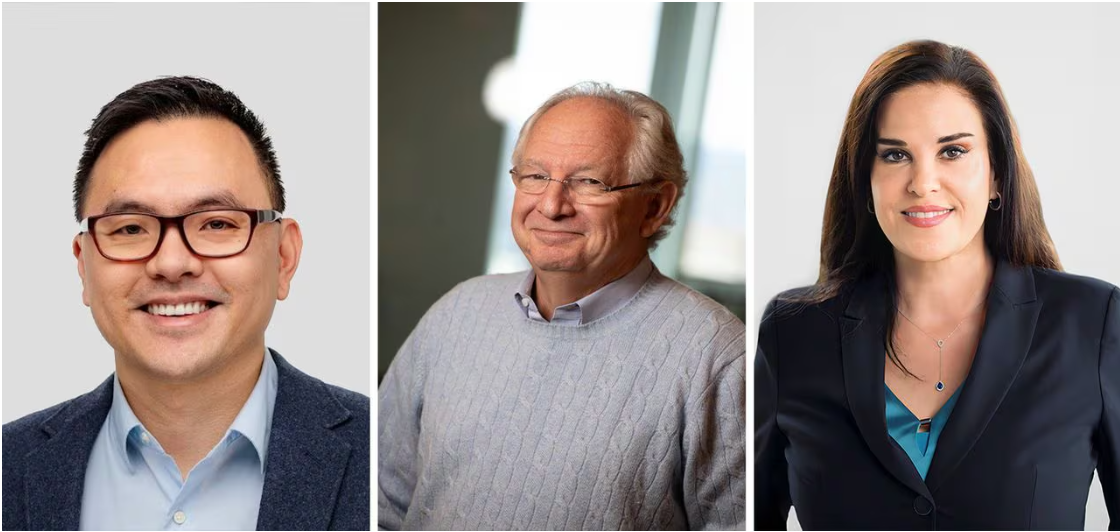海港疗法公司斥资 1 亿美元开发治疗精神障碍的新方法

【中美创新时报2024 年 4 月 9 日波士顿讯】(温友平编译)波士顿生物技术公司卡鲁纳治疗公司(Karuna Therapeutics )背后的团队于去年 12 月被制药巨头百时美施贵宝 (Bristol Myers Squibb) 以 140 亿美元的价格收购,该公司周二成立了另一家名为海港疗法(Seaport Therapeutics )的公司,该公司将再次专注于神经精神药物。《波士顿环球报》记者乔纳森·萨尔兹曼(Jonathan Saltzman)对此作了下述报道。
这家波士顿新公司已在第一轮融资中筹集了 1 亿美元,并将由生物技术初创公司纯科技健康(PureTech Health)的创始首席执行官达芙妮·佐哈尔 (Daphne Zohar) 领导,该公司帮助推出了 Karuna 和 Seaport。 她将担任创始人、首席执行官和董事会成员。
另外两位联合创始人是卡鲁纳 (Karuna) 前首席执行官史蒂文·保罗 (Steven Paul),他将担任 Seaport 的董事会主席,以及 PureTech 的创新主管迈克尔·陈 (Michael C. Chen)。
Seaport 正试图复制 Karuna 的成功,该公司成立于 2009 年,并于 2019 年上市。Karuna 的主要候选药物 KarXT 是一种旨在治疗精神分裂症的抗精神病药物,为百时美施贵宝达成这项交易提供了关键动力,该交易于去年 12 月宣布并于今年 3 月完成。
美国食品和药物管理局计划在 9 月 26 日之前决定是否批准 KarXT。如果批准,该药物将成为数十年来首个新型精神分裂症药物。(KarXT 使用与市场上其他抗精神病药物(如 Zyprexa、Seroquel 和 Abilify)不同的机制。)
保罗说,和卡鲁纳一样,海港公司正在专注于开发一种新的精神疾病治疗方法——在海港公司的案例中,治疗抑郁症和焦虑症。保罗说,针对这些疾病最广泛使用的治疗方法是选择性血清素再摄取抑制剂 (SSRI),其历史可以追溯到 20 世纪 80 年代末和 90 年代初,但大约三分之一的重度抑郁症患者对这些药物没有反应。
“严重的抑郁症和焦虑症是所有疾病中最常见、致残且可能致命的疾病之一,”礼来公司前高级管理人员保罗说。他补充说,目前的治疗方法“并没有为太多患者提供足够的缓解。”
Seaport 拥有三种治疗抑郁症和焦虑症的候选药物,这些药物依赖于该公司的新颖技术方法。 正如陈解释的那样,患者服用的大多数处方药都会在肝脏中分解,这可能会对该器官造成损害,并导致“血液中的药物减少,到达大脑的药物也减少”。
陈说,Seaport 的技术“改变了药物的吸收方式”。该平台依靠肠道淋巴系统来循环药物并绕过肝脏,以提供最大的益处和最少的副作用。
佐哈尔补充道:“我们致力于为患有抑郁症、焦虑症和其他神经精神疾病的患者提供一流的药物。”
Seaport位于波士顿海港区潮汐街,已获得澳大利亚莫纳什大学的药物开发技术许可。
作为 Seaport 推出的一部分,佐哈尔辞去了 PureTech 首席执行官的职务,并由 PureTech 高级执行官 Bharat Chowrira 接任。PureTech 在伦敦证券交易所上市。
佐哈尔表示,支持 Karuna 并为 Seaport 的 1 亿美元融资做出贡献的风险投资公司包括 ARCH Venture Partners 和 Sofinnova Investments。
题图:Seaport Therapeutics 的联合创始人,从左至右:迈克尔·陈(Michael Chen)、史蒂文·保罗(Steve Paul)和 达芙妮·佐哈尔(Daphne Zohar)。SEAPORT THERAPEUTICS
附原英文报道:
Seaport Therapeutics has $100 million to develop new ways to treat mental disorders
By Jonathan Saltzman Globe Staff,Updated April 9, 2024
The team behind Karuna Therapeutics, the Boston biotech that was bought by drug giant Bristol Myers Squibb in a $14 billion deal in December, launched another company on Tuesday called Seaport Therapeutics that will again focus on neuropsychiatric medicines.
The new Boston company has landed $100 million in its first round of fund-raising and will be led by Daphne Zohar, the founding chief executive of biotech startup creator PureTech Health, which helped launch Karuna and Seaport. She will serve as founder, chief executive, and a member of the board of directors.
Two other cofounders are Steven Paul, a former chief executive of Karuna who will chair Seaport’s board of directors, and Michael C. Chen, head of innovation at PureTech.
Seaport is trying to repeat the success of Karuna, which was founded in 2009 and went public in 2019. Karuna’s lead drug candidate, KarXT, an antipsychotic medicine designed to treat schizophrenia, provided a key incentive for Bristol Myers to make the deal, which was announced in December and closed in March.
The Food and Drug Administration is scheduled to decide whether to approve KarXT by Sept. 26. If it does, the medication would represent the first new class of schizophrenia drugs in decades. (KarXT uses a different mechanism than other antipsychotic drugs on the market such as Zyprexa, Seroquel, and Abilify.)
Like Karuna, Paul said, Seaport is focusing on developing a new class of treatments for mental illness — in Seaport’s case, depression and anxiety. The most widely prescribed treatments for those maladies, selective serotonin reuptake inhibitors, or SSRIs, date back to the late 1980s and early 1990s, but roughly a third of patients with major depression don’t respond to them, Paul said.
“Major depression and anxiety disorders are among the most common, disabling, and potentially fatal of all medical conditions,” said Paul, a former high-ranking executive at Eli Lilly and Company. Current treatments, he added, “provide inadequate relief for far too many patients.”
Seaport has three drug candidates to treat depression and anxiety that rely on the firm’s novel technological approach. As Chen explained it, most prescription pills taken by patients are broken down in the liver, which can cause damage to that organ and leave “less drug in the bloodstream and less drug hitting the brain.”
Seaport’s technology “shifts the way drugs are absorbed,” Chen said. The platform relies instead on the intestinal lymphatic system to circulate the medicine and circumvent the liver in an effort to deliver the most benefits and fewest side effects.
“We are dedicated to bringing first and best-in-class medicines to those that are suffering from depression, anxiety, and other neuropsychiatric disorders,” Zohar added.
Seaport, which is located on Tide Street in Boston’s Seaport District, has licensed drug development technology from Monash University in Australia.
As part of the launch of Seaport, Zohar has stepped down as chief executive of PureTech and been succeeded by PureTech senior executive Bharatt Chowrira. PureTech is listed on the London Stock Exchange.
Among the venture capital firms that backed Karuna and contributed to Seaport’s $100 million fund-raising round are ARCH Venture Partners and Sofinnova Investments, Zohar said.

